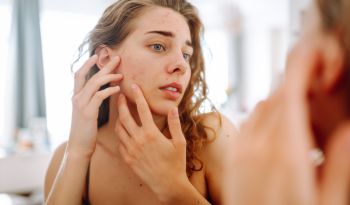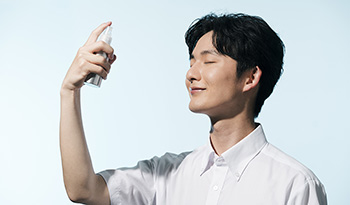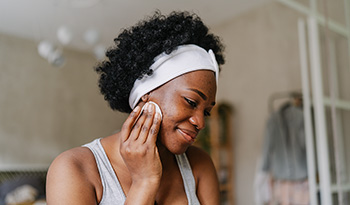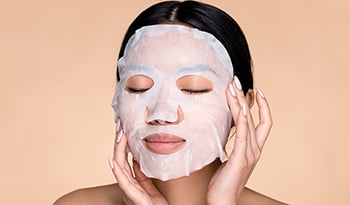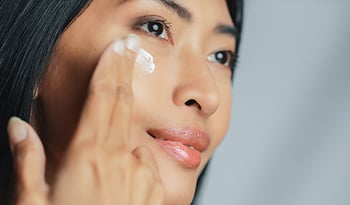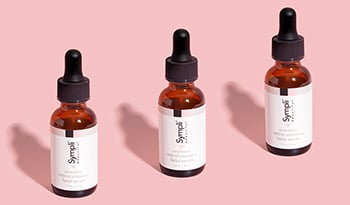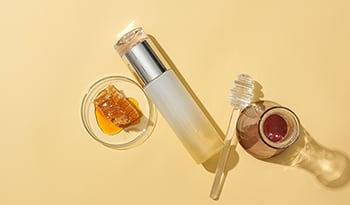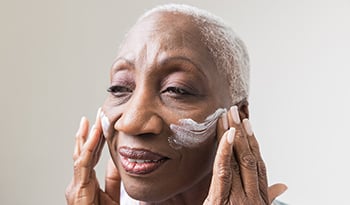How Hyaluronic Acid Nourishes Your Skin and Benefits Your Beauty Game

Those with clear, radiant, vibrant-looking skin appear visibly in good health. While many people spend a lot of time improving the appearance of their skin from the outside, the real key to young-looking skin is proper nutrition and healthy habits that nourish the skin from the inside out or beauty from within.
In addition to basic diet and lifestyle health strategies, many natural compounds can help, both topically and internally. And one of the most important is a little-discussed dietary supplement that is extremely popular in topical preparations to prevent the wrinkling and dryness that contributes to old-looking skin. I am referring to hyaluronic acid (HA).
What Is Hyaluronic Acid?
Hyaluronic acid is one of the most important chemicals within the human body. HA supports the loose connective tissue holding the skin and internal organs in place and the strength of fibrous connective tissues like tendons, ligaments, and cartilage. In essence, hyaluronic acid is the actual "glue" that holds our body together. It works closely with collagen, the main protein of connective tissue. Think of collagen as the bricks in a brick house and HA as the mortar that holds the bricks together.
Maintaining youthful levels of HA (and collagen) in body tissues is an important anti-aging strategy. One of the reasons our skin develops lines and wrinkles is due to the loss of HA and collagen. By the time most people reach the age of 70, the HA content in their bodies has dropped by 80% from when they were 40. After the age of 45 or so, HA levels in the skin begin to plummet.
One of the most popular methods to increase HA in the body is via injection. Specifically, since 2003, injectable forms of HA have been approved for medical use and widely used to fill in facial wrinkles and plump up thinning lips.
Hyaluronic injections temporarily smooth wrinkles by adding volume under the skin, with effects typically lasting for six months. In addition to using injectable forms of hyaluronic acid to fill in wrinkles, injectable forms of HA are also approved medical treatments to help relieve arthritis.
Are injections the only way to boost HA levels? Of course not. Oral supplementation with HA has also shown an ability to increase HA levels and produce significant benefits for skin and joint health. Topical application of HA to the skin also has beneficial effects.
Health Benefits of Hyaluronic Acid Supplementation
Most HA dietary supplements on the market are designed to be marketed to support joint health. Clinical studies have validated oral HA supplementation's clinical safety and effectiveness in promoting joint health. Using a highly purified HA, researchers found subjects given 200mg per day of HA for eight weeks demonstrated significant improvement in joint health compared to the placebo group.
Human clinical studies have also found oral HA supplements can improve skin hydration, reduce wrinkle depth and increase skin elasticity and firmness. HA is beneficial in those with dry and rough skin. HA supplementation showed an incredible ability to increase the skin's moisture (water) content in these people.
For example, in one double-blind study, HA supplementation produced an incredible 46% increase in the skin's moisture content after four months of use in those with dry, rough skin. With greater hydration, fine lines disappeared or were improved, and the skin had more radiance. In short, HA supplementation can dramatically improve the skin's appearance. The dosage used in clinical trials was typically 120 mg of HA daily, with results appearing after about a month of use.
Topical Hyaluronic Acid Skin Benefits
Topical hyaluronic acid is a popular ingredient in topical skin products. It is a powerful humectant, meaning it is a substance that can attract water.
HA can attract up to 1,000 times its weight in water. In addition to HA dietary supplements increasing skin hydration, applying HA directly to the skin has also been shown to help improve skin hydration. And topical HA can give skin a soft, moisturized feel throughout the day.
Topical HA also helps protect against skin damage as well as slow down the effects of aging. It can help the skin feel light and refreshing and doesn't usually cause breakouts or trigger a reaction in sensitive skin.
Remember that using HA products in dry climates may differ from using them in more humid climates. In dry climates, HA may not be able to attract enough moisture from the air. As a result, it might draw water from the skin's reserves instead. To prevent this effect in dry climates, use products that contain hyaluronic acid and a mix of other moisturizing ingredients rather than using a product that contains only HA.
References:
- Sato T, Iwaso H. An effectiveness study of hyaluronic acid(Hyabest® J) in the treatment of osteoarthritis of the knee on the patients in the United States. New Rem Clin. 2009;58(3)
- Michelotti A, Cestone E, De Ponti I, et al. Oral intake of a new full-spectrum hyaluronan improves skin profilometry and ageing: a randomized, double-blind, placebo-controlled clinical trial. Eur J Dermatol. 2021 Dec 1;31(6):798-805.
- Sato T, Sakamoto W, Odanaka W, Yoshida K, Urushibata O. Clinical effects of hyaluronic acid diet for dry and rough skin. Aesthetic Dermatol 2002;12:109-20.
- Bravo B, Correia P, Gonçalves Junior JE, Sant'Anna B, Kerob D. Benefits of topical hyaluronic acid for skin quality and signs of skin aging: From literature review to clinical evidence. Dermatol Ther. 2022 Dec;35(12):e15903.
- Pavicic T, Gauglitz GG, Lersch P, Schwach-Abdellaoui K, Malle B, Korting HC, Farwick M. Efficacy of cream-based novel formulations of hyaluronic acid of different molecular weights in anti-wrinkle treatment. J Drugs Dermatol. 2011 Sep;10(9):990-1000.
DISCLAIMER:This Wellness Hub does not intend to provide diagnosis...
















































































 Table of Contents
Table of Contents




